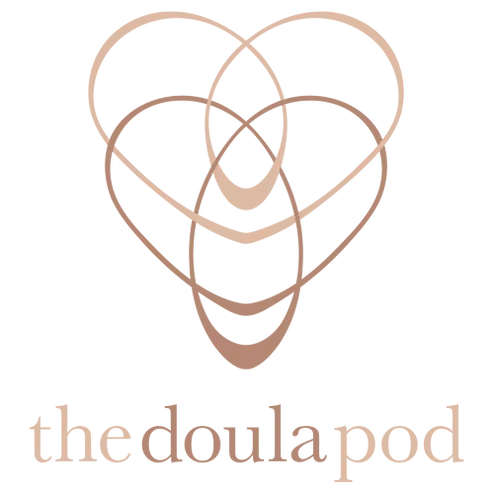What is a doula and why would I need one? What I wish I knew when I was having my children - the importance of knowledge and support.
My name is Rikki-Lee, I am a certified doula, and it is my own experience with birthing and motherhood that inspired me to pursue a career in the field of pre and post-natal care. Here is what I wish I knew when I was having my children - the importance of knowledge and support.
Looking back, I did very little to educate myself before my firstborn. I didn’t ask enough questions; I didn't investigate what resources were available to me before and after birth. And I didn't set up a support network around me, because somehow, I thought I could do it all myself. Then when I experienced a very unexpected early arrival, everything I thought I knew was up in the air. While I was lucky enough to be able to leave the hospital with a beautiful, healthy boy, the experience left me feeling truly disempowered.
When I fell pregnant with my daughter 5 years later, I knew that this time I wanted to take control. Control of my body, my instincts, my choices and ask more questions. I hired a doula.
I wanted to educate myself and surround myself with the best possible support, so that no matter what my birth outcome was, whether that be vaginal, c-section, drug free or epidural…these decisions were made informed, empowered, and supported. After what was for me an incredibly healing second birth, I embarked on motherhood as a mum of 3. My stepson was 8 at the time, my son was 5 and had just started kindergarten the same month my daughter was born, and I actually felt like I had it all together.
But I was unprepared for the mental health effects that genuine sleep deprivation would have on me the second time around. My daughter had allergies, reflux, gut issues, and it felt like she NEVER stopped crying. I was in the trenches, without a lot of support, I felt truly exhausted and was quickly met with postpartum depression.
I felt called to become a doula- to ensure every mother could seek support, advice, guidance, to feel heard and never feel like she is in the trenches alone during her journey.
What is a doula and why would I need one?
The definition of a doula. is a person trained to support, inform, and offer emotional and physical comfort to a mother before, during and after birth.
A doula can mean different things to different people. Whatever that ‘support’ looks like is what I provide. We all have different needs, wants, hopes, fears and together we navigate, discuss and plan, to ensure you are getting the support that feels right for you.
The ideal situation is that women work with me from pregnancy through to birth and beyond. My emphasis is on supporting the mother and really involving their partner or chosen support person. In my opinion, strong, unified relationships around a mother is paramount to ultimately a more positive outcome of a mother's mental health and wellbeing. We thrive on connection and, without it, the ability to rest, recover and ensure our mental health is stable can become a genuine struggle.
A doula mothers the mother. Educating, preparing, supporting, nurturing her. Ensuring all a mother’s needs are met and to be prepared for the unexpected. Mothers should not feel like they are alone and ‘surviving' their postpartum period.
They say “it takes a village” but for many the village feels unattainable. In big cities, many do not have family close by or an obvious support network. We no longer have the support mechanisms that new mothers need and truly should have. However, we can create them! We can build our village…A doula helps to bridge that gap.
What support is available for new parents and how do I access it?
There is so much support out there for new parents and sometimes it’s hard to know where to start! By planning your postpartum, the approach for seeking help will be more streamlined. Planning highlights and fine tunes what you really need; knowing what YOU need, will help you to find the appropriate support. Planning your support can significantly ease the transition into parenthood.
Services such as birth and postnatal doulas, lactation consultants and breastfeeding helplines can support physical and emotional care. Women’s physiotherapy and postpartum specific exercise studios can aid in physical recovery. Seeking healthy ready-made meal deliveries for those days when you realise you have not had the time to prepare, while knowing the importance of nourishing your body. Mental health support services are a must, in Australia we are so fortunate to have several free services that specialise in parent and post-partum support.
Jumping on to your local Facebook groups that are aligned to parents and asking for recommendations is always an option too. Speaking to friends and your trusted GP are also options to seek the right care and support for you.
My philosophy with any advice, guidance or recommendation is “if it feels right and resonates with you… do it. If it does not feel right, let it go.” Start learning to trust that feeling.
What happens when I bring the baby home?
I will never forget the feeling of bringing my children home from the hospital on their first day. Each time walking into the house I thought “they really let me come home to care for this tiny human!?” It can be a really overwhelming moment. As doula my role is to ensure those early days feel less daunting and more grounding. To give yourself permission and learn the art of slowing down. We discuss your birth experiences, I answer any newborn questions (which you will certainly have) settling techniques, swaddling, bathing, feeding support and more. Remember, a doula is for the mother; I will encourage a beautiful warm shower, an uninterrupted nap, home cooking so there are meals in the fridge, a massage, light household duties, a cup of tea and a talk. This is where bespoke care comes in. Whatever you need most in that moment, I am there.
Top tips for new parents
Planning your support network is everything: Plan ahead. Plan during pregnancy. Write your list of helpful contacts. You may not use or need them all, however having it available in case you do is absolutely worth it!
Do what feels right for you: Trust your instincts and don't be afraid to make decisions based on what feels right for you, your family and your baby.
Ask for Help: People truly want to support you, and sometimes do not know how. Reach out to family, friends, or professionals for support. Whether it's advice, a helping hand, or just someone to talk to, you're not alone.
Self-care matters: While self-care might feel like the current buzz word. Taking care of yourself is essential. Ensure you're eating well, staying hydrated, and getting as much rest as possible is self-care. Remember, you can't pour from an empty cup.
Share responsibilities: Parenting is a team effort. The team effort begins in pregnancy. Share responsibilities with your partner or other caregivers to ensure that everyone feels heard, valued, supported, and feels involved.
Embrace flexibility: Life with a baby is certainly an adjustment. While routines can be helpful, flexibility is key. Be prepared for plans to change and adapt as needed.
Educate yourself: knowledge is power. Attend classes, listen to podcasts and seek reliable online resources to learn about birth, labour, breastfeeding, infant care and parenting techniques.
Be patient and kind to yourself: As a parent we are forever learning. My children are far from babies, yet it still brings its challenges. Be patient with yourself, celebrate small victories, and don't be too hard on yourself when things don't go perfectly.
Contact Rikki-Lee
Mental Health Support:


